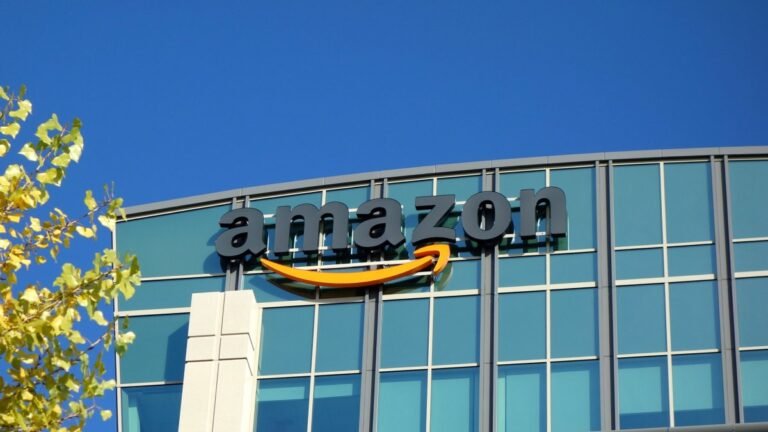
As a result, we’re beginning to see what an app store ecosystem could look like when other developers are allowed to compete with the default iPhone App Store.
One notable case in point is the AltStore, an alternative app store that’s preparing to take advantage of the DMA to launch an updated version of its app marketplace in the EU, with plans to support Patreon-backed apps.
To comply with the new European law, Apple is introducing APIs and frameworks that allow developers to distribute apps independently of the App Store.
“It all works virtually the same as the App Store now,” Testut says.
In the screenshots he shared, the AltStore looks much like a modern-day app store, with categories like Games, Lifestyle and Utilities, as well as buttons to download its free apps, as on Apple’s App Store.

Amazon will have to publish an ads library in EU after allAmazon will have to provide information about the ads running on its platform in a publicly accessible online archive after all, following a decision by the European Union’s highest court Wednesday.
Other tech giants designated under the DSA have complied with the ads transparency provision.
However, on Wednesday, the Court of Justice of the EU (CJEU) reversed the September decision by the EU General Court to grant Amazon the partial suspension.
It is also a win for platform transparency as it will force Amazon to be more open about the ads it displays and monetizes.
In a statement following the CJEU decision provided to TechCrunch, and attributed to an Amazon spokesperson, the company said:

The one time that Europe is explicitly mentioned, however, is in relation to Apple’s grip on digital wallets, NFC and mobile payment technology within its iOS ecosystem.
For context, the EU filed charges against Apple in May 2022, concluding that Apple “abused a dominant position” around mobile wallets by preventing rival services from accessing the iPhone’s contactless NFC payment functionality.
For example, Apple allows merchants to use the iPhone’s NFC antenna to accept tap-to-pay payments from consumers.
Then there is cross-platform smartwatch compatibility, which the DOJ says Apple impedes by restricting certain features from third-party smartwatch makers.
However, NFC, digital wallets, and mobile payments are where they seem to be most neatly aligned on.

On Tuesday, digital EVP and competition chief Margrethe Vestager cast doubt on Meta’s privacy fee, telling Reuters: “I think there are many different ways to monetize the services that you provide.
“Consumers should be given time to reflect before making that decision, and not being put under pressure to accept it quickly.”As noted above, consumer protection groups have filed a number of complaints about Meta’s privacy fee — arguing Meta is breaching EU consumer protection and privacy rules.
There’s currently no way for users in the EU to use Facebook or Instagram and not be tracked.
They suggest Meta’s strategy is a blatant attempt to circumvent EU laws by making privacy an unaffordable luxury.
Vestager’s remarks also suggest the Commission already takes the view that Meta’s privacy fee is non-compliant with the DMA.

“[W]e await feedback from the Irish Data Protection Commission [DPC], our lead data protection regulator in the EU,” he added.
While Meta’s compliance with the GDPR is led by the Irish DPC, under the regulation’s one-stop-shop.
This structure does not mean the Irish authority gets final say on Meta’s compliance with EU privacy rules, though.
In the case of Meta, this has frequently led to objections from other data protection authorities which have landed stiffer enforcements than the DPC originally proposed.
So who gets the final say on the GDPR compliance of Meta’s consent mechanism is complex too.

Europe eyes LinkedIn’s use of data for ads in another DSA askMicrosoft-owned professional social network, LinkedIn, is the latest to get a formal request for information (RFI) from the EU.
Of specific concern is whether LinkedIn is breaching the DSA’s prohibition on larger platforms’ use of sensitive data for ad targeting.
Profiling based on such data to target ads is banned under the law.
The DSA also empowers the EU to impose fines for incorrect, incomplete, or misleading information in response to an RFI.
LinkedIn isn’t the only platform to be in the EU’s spotlight when it comes to use of data for ads.

The eight platforms are designated as very large online platforms (VLOPs) under the regulation — meaning they’re required to assess and mitigate systemic risks, in addition to complying with the bulk of the rules.
These will test platforms’ readiness to deal with generative AI risks such as the possibility of a flood of political deepfakes ahead of the June European Parliament elections.
It’s recently been consulting on election security rules for VLOPs, as it works on producing formal guidance.
Which is why it’s dialling up attention on major platforms with the scale to disseminate political deepfakes widely.
The Commission’s RFIs today also aim to address a broader spectrum of generative AI risks than voter manipulation — such as harms related to deepfake porn or other types of malicious synthetic content generation, whether the content produced is imagery/video or audio.

The European Union has opened its third formal investigation of a very large platform under the Digital Services Act (DSA), with China’s AliExpress earning itself the dubious honor of being the first online marketplace to face formal probe by the Commission.
Social media platforms X and TikTok are the two other very large online platforms (VLOPs) already under formal DSA investigation (since December and February, respectively).
They said it will also look into transparency and safety concerns related to influencers’ use of AliExpress.
It said it will also investigate how the influencer affiliate program is implemented to verify whether it complies with DSA transparency rules.
There’s no fixed timeline for the EU to conclude a DSA investigation.

The European Parliament voted Wednesday to adopt the AI Act, securing the bloc pole-position in setting rules for a broad sweep of artificial intelligence-powered software — or what regional lawmakers have dubbed “the world’s first comprehensive AI law”.
pic.twitter.com/t4ahAwkaSn — Thierry Breton (@ThierryBreton) March 13, 2024Once published in the EU’s Official Journal in the coming months, the AI Act will come into force 20 days after that.
And with that alone the AI Act has nudged the future of AI in a human-centric direction.
But the legislation also puts some (light touch) transparency obligations on a third subset of apps, including AI chatbots; generative AI tools that can create synthetic media (aka deepfakes); and general purpose AI models (GPAI).
Rules for GPAIs were a later addition to the AI Act, driven by concerned MEPs.

Apple will allow iOS developers located in the European Union to distribute apps from the web, rather then via its App Store.
“Web Distribution, available in a software update later this spring, will let authorized developers distribute their iOS apps to EU users directly from a website the developer owns and operates,” it writes.
iOS users will also need to approve the developer installing apps from their site via their iPhone Settings.
Apple’s initial proposal for DMA compliance did not allow web based distribution for apps.
While its current attempt to force EU users to consent to tracking is being challenged via GDPR and consumer protection complaints.













